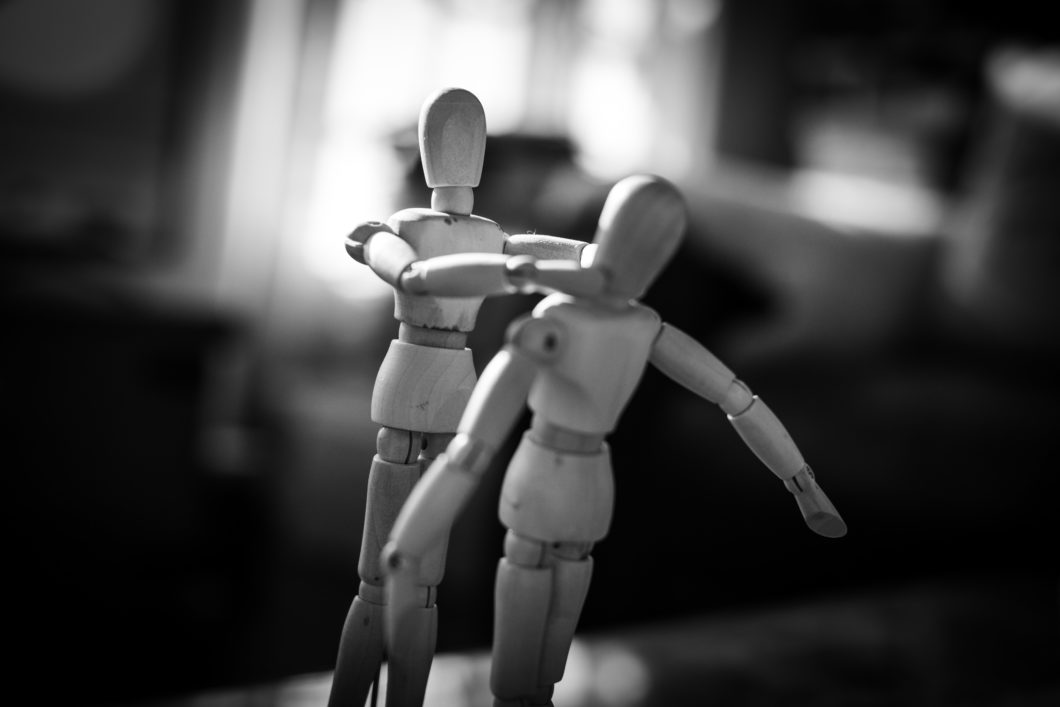27/10/2022
A research project at the Virginia Commonwealth University studies the biological, neurological and psychological mechanisms behind aggression. Its goal is to be able to control and reduce violence.
Click HERE to download the Weekly English Practice as a PDF.
Useful vocabulary
issue: an important topic or problem for debate or discussion
hurt: cause pain or injury
forefront: the leading or most important position or place
straightforward: uncomplicated and easy to do or understand
harm: physical injury, especially that which is deliberately inflicted
pattern: a repeated design
matter: a subject or situation under consideration
dwells: live in or at a specified place
hardwired: make (a pattern of behaviour or belief) standard or instinctive
Listen to the audio and read the text.
Why do people hurt each other?
“These days, aggression is a sadly relevant topic around the world. It’s an important issue right now. It speaks to a problem that I’ve been researching, and I wish it wasn’t so relevant,” says David Chester of Virginia Commonwealth University, who is the director of one of the few laboratories that study the biology of aggression. “To reduce violence, we must first more deeply understand why people are violent. “We are an evolutionarily advanced species, but ultimately we hurt each other,” Chester notes. “Aggression is at the forefront of our lives; however, characterising it is not straightforward. In our lab, we define it as the impulse to hurt someone who doesn’t want to be hurt. You don’t necessarily have to cause harm; pure intent is enough. I wanted to hit you, and you didn’t want to be hurt. There are times when we do want to be hurt, like when I order spicy food in a restaurant, but in the case of aggression, the victim does not want to be hurt.”
Like altruism, or any other pattern of social behaviour, aggression is complex and multifactorial. There is a genetic component to it, and brain mechanisms activate it. Some aggression is favourable, as in the case of self-defense.
Clearly, aggression is a common trait in the animal kingdom, where it often takes complex forms and serves a wide range of functions that enhance survival and reproduction. However, humans do not appear to be particularly well-suited to a life of violence, although we could hardly be called gentle. The matter is compounded by the fact that we are omnivorous creatures; we are physically weak and lack claws and beaks, which makes it difficult to kill another person without artificial weapons.
Aggression innately dwells in our brains and is usually understood to be driven by negative emotions, such as anger or fear, but Chester says, “positive emotions also play a central role in aggressive behaviour; aggression can feel good, and that hedonic reward is a really powerful motivating force.”
Chester speculates that evolution favours neurobiological and psychological traits that help us to achieve certain goals, such as finding a mate, procuring resources, and achieving status. The brain is hardwired to reward and reinforce behaviours that have served us well throughout our evolutionary history. Chester thinks that it probably started with a predatory drive: “It’s the same fundamental drive that prompts the wolf to target the rabbit; in psychopaths, that drive has gone too far. They see everyone else as prey.”
“We can’t ignore our aggressive impulses, and it’s not a good idea to do so. We need to transform them into useful forces and accept that they are here to stay,” Chester concludes.
Adapted from this article by ECP coach Darren Lynch
Let’s chat about that!
- According to the text, why do people hurt each other?
- Is aggression driven by negative or positive emotions? Explain your answer.
- Do you believe aggression is an important topic for discussion? Give reasons for your answer.
- How do you think we can use our aggression in a positive way?
- Do you notice an increase in aggressive behaviour where you live? Give examples.
- What do you feel is the best way for people to deal with aggressive behaviour towards them?

